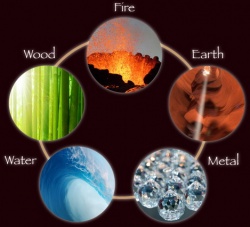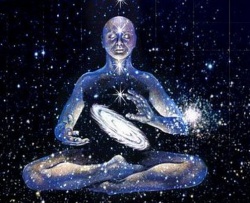Difference between revisions of "5 Elements"
Jump to navigation
Jump to search
| Line 70: | Line 70: | ||
{{R}} | {{R}} | ||
[http://chemistry.about.com/od/historyofchemistry/a/5-Elements.htm chemistry.about.com] | [http://chemistry.about.com/od/historyofchemistry/a/5-Elements.htm chemistry.about.com] | ||
| − | [[Category:Five elements]] | + | [[Category:Five elements]]{{BuddhismbyNumber}} |
Latest revision as of 10:26, 22 April 2014
5 Elements: Earth, Water, Fire, Wind, Space.
There are 5 elements in many philosophies and traditions around the world. Here is a look at the 5 elements in Chinese, Japanese, Buddhist, Greek, Babylonian and alchemy.
Babylonian 5 Elements
Medieval Alchemy
The number of traditional elements in medieval alchemy varies from 4, 5 or 8. The first four are always found. The fifth, aether, is important in some traditions. Sulfur, mercury and salt are classical elements.
Greek 5 Elements
Chinese 5 Elements - Wu Xing
Japanese 5 Elements - Godai
Hindu and Buddhist 5 Elements
Akasha is the equivalent to Aristotle's aether, in the Greek tradition. While Hinduism traditionally recognizes 5 elements, Buddhism typically only the first four "great" or "gross" elements. Although the names are different, the first four elements roughly translate as being air, fire, water and earth.



